Contrary to what opponents of a military intervention in Libya are claiming, the U.S. is not at war with Libya. In fact, it’s very possible that the U.S. will not even be directly engaged in any eventual acts of war against Libya. And though endgames, outcomes and objectives are valid concerns and necessary considerations, much of the hand-wringing is premature. The U.N. Security Council resolution will allow outside powers to target Moammar Gadhafi’s air and ground forces to keep them from delivering the final blow that was all but imminent even as the council voted on the measure last night. […]
Diplomacy & Politics Archive
Free Newsletter
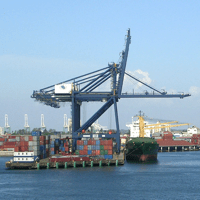
Editor’s note: This is the last of a five-part series examining security and development aid in East Africa. Part I provided an overview of the challenges facing East Africa. Part II examined the overlap between public health and security challenges. Part III examined the overlap between small-arms trafficking and WMD nonproliferation. Part IV examined the overlap between counterterrorism and efforts to contain criminal violence. Part V provides success stories for the security-development model and discusses next steps. In East Africa, pressing regional challenges — including the inability to detect and treat disease, the flow of illicit firearms across unsecured borders […]
Australia and Mongolia recently signed a number of agreements to increase bilateral business and educational cooperation. In an e-mail interview, Li Narangoa, a professor in the School of Culture, History and Language at the Australian National University, discussed Australia-Mongolia relations. WPR: What is the extent of existing trade between Australia and Mongolia? Li Narangoa: Trade between Australia and Mongolia has been small, with a total value of about $25 million in 2010. Though Australia and Mongolia established diplomatic relations in 1972, a serious trade relationship began only in the 1990s, when Mongolia introduced a democratic political system and free-market reforms. […]
Next week the United States will mark the 8th anniversary of the invasion of Iraq — widely considered one of the worst foreign policy disasters in American history. Meanwhile, more than 100,000 U.S. troops remain mired in Afghanistan, nine years after the Taliban were toppled from power. Both conflicts are daily reminders that the use of U.S. military force can have unforeseen and often unpredictable consequences. For that reason, force should be considered only in the most pressing of national security circumstances. Unfortunately, if the response to the uprising in Libya is any indication, it seems many members of the […]
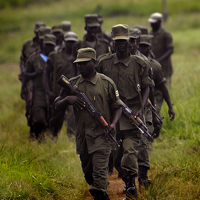
Editor’s note: This is the fourth of a five-part series examining security and development aid in East Africa. Part I provided an overview of the challenges facing East Africa. Part II examined the overlap between public health and security challenges. Part III examined the overlap between small-arms trafficking and WMD nonproliferation. Part IV examines the overlap between counterterrorism and efforts to contain criminal violence. Part V will provide success stories for the security-development model and discuss next steps. On July 11, 2010, bombs ripped through crowds gathered to watch the World Cup soccer final in downtown Kampala, Uganda, leaving 76 […]
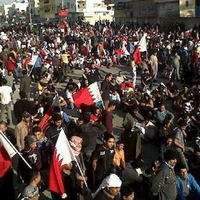
If there is one thing we have learned from the events of the last few weeks, it is to expect the unexpected and to at least consider the possibility that worst-case scenarios will materialize. No one could have predicted that in a matter of a few hours the world’s third-largest economy would suffer a triple disaster — a massive earthquake, a devastating tsunami and a slow-motion nuclear nightmare — just as no one expected that a fruit salesman in Tunisia would trigger a chain reaction of uprisings in the Middle East. Nassim Taleb called these high-impact, low-probability events Black Swans, […]
While international attention is focused on Libya, violence has also erupted on the other side of Africa, in Côte D’Ivoire. Tensions have been steadily rising since the country’s incumbent president, Laurent Gbagbo, refused to step down after challenger Alassane Ouattara was widely recognized as having won November’s election. But intense gun battles erupted last weekend, when, according to the New York Times, forces loyal to Gbagbo began an assault to drive Ouattara’s fighters out of the Abobo district of Abidjan, the country’s financial capital. The escalation in the fighting has prompted roughly 200,000 people to flee the city, and raises […]
The Arab League’s decision over the weekend to call for a no-fly zone over Libya is seen as a crucial measure of regional support for such an operation. Some have even argued that a Muslim country must be involved in the mission. In an e-mail interview, Yiftah Shapir, senior research fellow and director of the Military Balance Project at the Institute for National Security Studies, discussed the capabilities of Middle Eastern and North African air forces. WPR: Which countries in the Middle East and North Africa have significant air forces? Yiftah Shapir: There are two large air forces in the […]
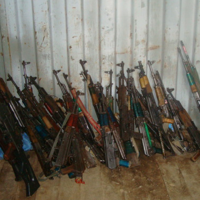
Editor’s note: This is the third of a five-part series examining security and development aid in East Africa. Part I provided an overview of the challenges facing East Africa. Part II examined the overlap between public health and security challenges. Part III examines the overlap between small arms trafficking and WMD nonproliferation. Part IV will examine the overlap between counterterrorism and efforts to contain criminal violence. Part V will provide success stories for the security-development model and discuss next steps. Former U.N. Secretary-General Kofi Annan famously called small arms and light weapons (SALW) “the weapons of choice for the killers […]

What a difference a year makes. On March 14, provisional results announced by Niger’s electoral commissioner gave veteran opposition leader Mahamadou Issoufou the edge in a presidential poll widely hailed as free and fair and accepted gracefully by his defeated opponent, former Prime Minister Seini Oumarou. The election fulfilled the hopes and anticipations for a strong democratic showing from Niger, which had flirted with chaos after a military coup ousted President Mamadou Tandja in February 2010. Tandja’s desire to remain in office beyond his term was opposed by the armed forces, which had helped him assume power in the first […]
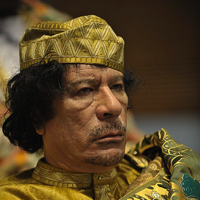
For the authoritarian leader, holding onto power is both an art and a science. Much depends on crafting a strategy to deal with the unique social and political characteristics of a given country. However, autocrats also take cues from events in foreign countries and build their institutions accordingly. Many observers of global politics are watching China and North Korea to see if protests and unrest currently roiling the Middle East will spread there. The leaders of China, Myanmar, North Korea and other authoritarian states are watching North Africa just as closely, in order to learn what to expect next. One […]
Just a few final thoughts on the opportunity I believe we missed in Libya. To begin with, many of the counterarguments to a U.S. military intervention are sound. As I’ve already agreed, a no-fly zone is unlikely to be decisive. The same holds true for a limited air strike of the kind I suggested. The advantage of the latter is that it very clearly signals our support for the anti-Gadhafi forces, who we could then supply with less-visible logistical and material support, while allowing us to avoid the long-term commitment of forces and resources of a no-fly zone. But in […]
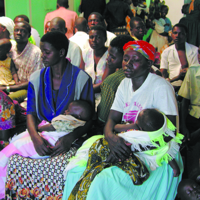
Editor’s note: This is the second of a five-part series examining security and development aid and capacity-building in East Africa. Part I provided an overview of the challenges facing East Africa. Part II examines the overlap between public health and security challenges. Part III will examine the overlap between small arms trafficking and WMD nonproliferation. Part IV will examine the overlap between counterterrorism and efforts to contain criminal violence. Part V will provide success stories for the security-development model and discuss next steps. As the burden of disease declines in much of the world, urbanization and changing lifestyles in Africa, […]
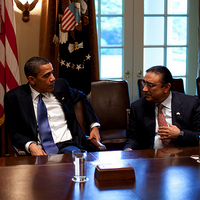
On Jan. 27, Raymond Davis killed two armed Pakistanis in a crowded part of Lahore, firing his Glock pistol nine times through the windshield of his car at the two motorcycle-borne men and landing every shot. He then exited his car to photograph and film the men, who he alleged were trying to rob him. According to autopsy findings, one was still alive when Davis photographed them. A third Pakistani was killed when he was hit by a vehicle responding to Davis’ subsequent call for backup. Both Davis and the backup car fled the scene. The police successfully intercepted Davis […]
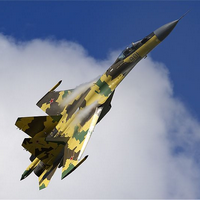
The Russian government recently announced its goals for Russia’s rearmament, with a shopping list that includes 100 ships, 600 airplanes, and 1,000 helicopters over the course of the coming decade. Although these figures make for spectacular headlines, they give a misleading impression of the extent of Russia’s likely military buildup. First Deputy Defense Minister Vladimir Popovkin, who is in charge of arms procurement, confirmed that the Ministry of Defense (MOD) envisages spending roughly $650 billion from 2011-2020 for its new State Armaments Program (SAP), which also includes more than $100 billion for the other Russian security services outside the MOD. […]
